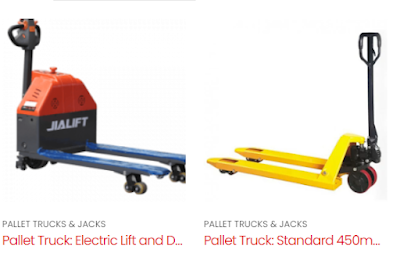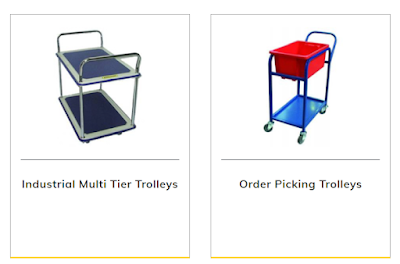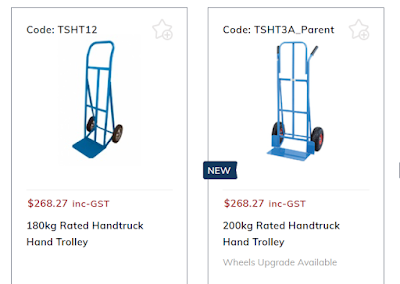Choosing the Right Pallet Truck for Your Needs: A Comprehensive Guide
Efficient management is the key for every warehouse and distribution
center. One of the essential tools for moving and transporting goods within a
warehouse or distribution center is the pallet truck from pallettrucksadelaide.com.au.
However, choosing the right pallet truck for your specific needs involves
considering various factors such as manual vs. electric options, capacity
requirements, features, and industry-specific considerations. Here are a few
important aspects to help you make an informed decision and optimize your
material handling operations.
Manual vs.
Electric Pallet Trucks
The first decision to make when selecting a pallet truck is whether to go
for a manual or electric model. Each type has its own set of advantages and
drawbacks.
A.
Manual Pallet Trucks:
Cost-Effective: Manual pallet trucks are generally more budget-friendly
upfront compared to their electric counterparts.
Simplicity: They are easy to operate and require minimal training.
Maintenance: Manual pallet trucks are simpler in construction, leading to
lower maintenance costs.
However, manual pallet trucks have limitations in terms of efficiency,
especially in large-scale operations where a significant amount of material
handling is required. They are ideal for smaller warehouses or businesses with
limited budgets.
B.
Electric Pallet Trucks:
Efficiency: Electric pallet trucks are powered, providing greater
efficiency and speed in material handling tasks.
Increased Capacity: Electric pallet trucks often have higher weight
capacities, making them suitable for heavier loads.
Operator Comfort: Electric pallet trucks reduce the physical strain on
operators, leading to increased productivity.
On the downside, electric pallet trucks come with a higher initial
investment and may require additional training for operators. Additionally,
they require charging infrastructure and may have higher maintenance costs.
Capacity Options
Once you've determined the type of pallet truck, the next crucial
consideration is its weight capacity. The capacity of a pallet truck is defined
by its ability to lift and transport loads. The capacity required depends on
the average weight of the loads you handle regularly.
· Standard
Capacity:2,000 to 5,000 pounds: Suitable for light to medium-duty applications.
· Heavy-Duty
Capacity:5,000 pounds and above: Ideal for handling large, heavy loads in
industrial settings.
Selecting the appropriate capacity ensures that the pallet truck can
handle your typical loads without compromising safety or performance.
Features to
Consider
Pallet trucks come with various features that can enhance their
functionality and suitability for specific applications. Some key features to
consider include:
-
Adjustable Forks:Ideal for accommodating different pallet
sizes, increasing versatility.
-
Quick-Lift Function:Increases efficiency by allowing the
pallet truck to reach maximum height in fewer pump strokes.
-
Built-in Scales:Useful for weighing loads directly on the
pallet truck, eliminating the need for additional scales.
-
All-Terrain Wheels:Essential for outdoor use or rough
warehouse surfaces, providing better maneuverability.
-
Corrosion Resistance:Important for industries with harsh
environments, ensuring the longevity of the pallet truck.
Industry-Specific
Considerations
Different industries have unique material handling requirements, and
choosing the right pallet truck involves considering these specific needs.
Food and Beverage Industry:Stainless steel or
corrosion-resistant pallet trucks are crucial to meet hygiene standards.
Pharmaceutical Industry:Pallet trucks with
cleanroom specifications and easy-to-clean surfaces are essential.
Retail and Distribution:Maneuverability and
efficiency are key factors in high-traffic areas.
Conclusion
Selecting the right pallet truck
is a critical decision that can significantly impact the efficiency and
productivity of your material handling operations. By carefully evaluating
factors such as manual vs. electric, capacity options, features, and
industry-specific considerations, you can make an informed choice that aligns
with your business needs. Remember that investing in the right pallet truck is
an investment in the smooth and streamlined flow of goods within your
organization, leading to improved overall operational efficiency.




Comments
Post a Comment